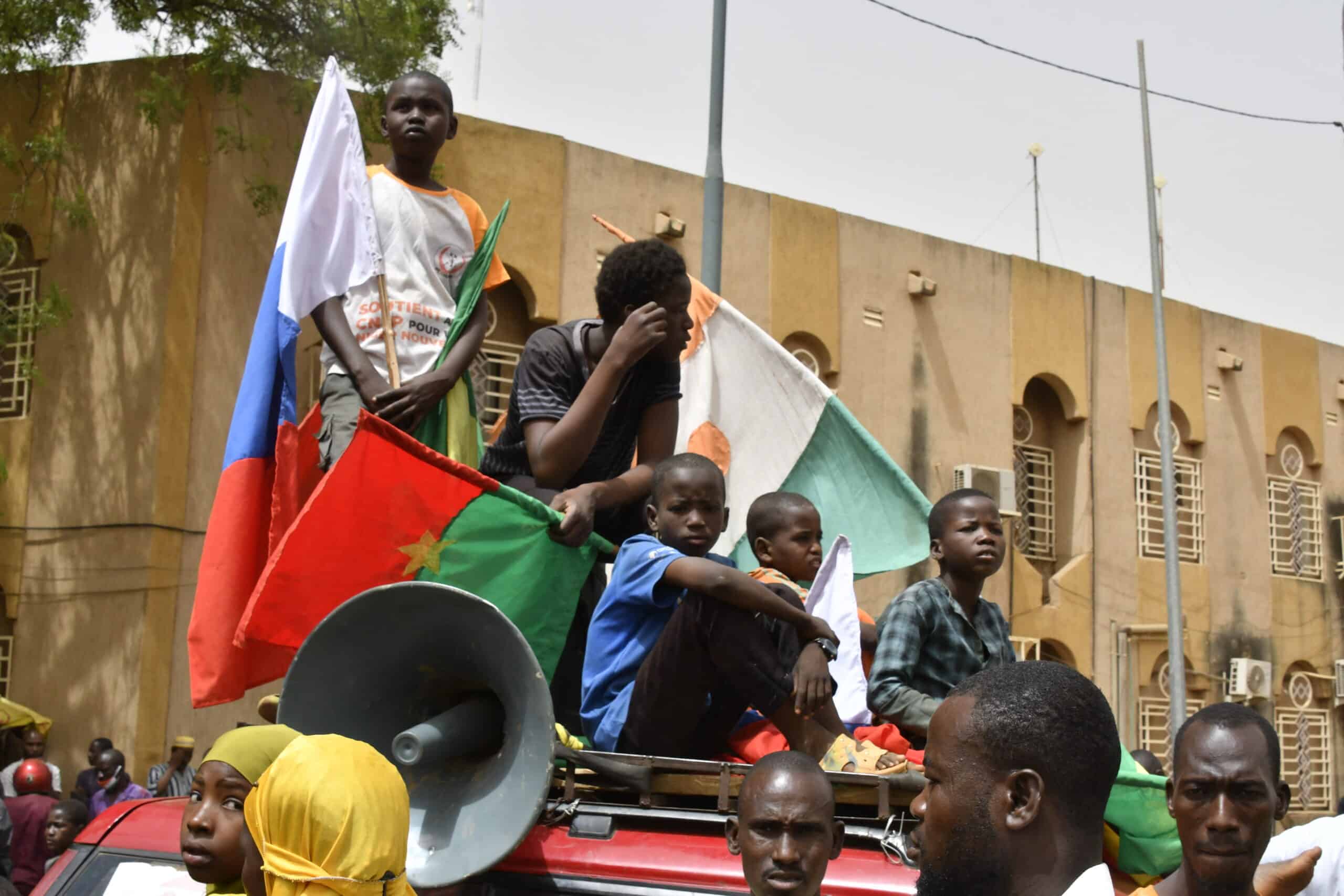
Young boys gather on top of a car while displaying flags of Niger, Burkina Faso and Russia during a demonstration for the immediate departure of United States Army soldiers deployed in northern Niger in Niamey, on April 13, 2024. Thousands of people demonstrated on April 13, 2024 in Niger’s Capital Niamey to demand the immediate departure of American soldiers based in northern Niger, after the military regime said it was withdrawing from a 2012 cooperation deal with Washington. (Photo by AFP)
Washington, United States — The International Monetary Fund announced Wednesday a $71 million disbursement towards Niger, which was hit by political instability after a military takeover last year.
The approval comes as the IMF executive board completed the fourth and fifth reviews of the West African country’s Extended Credit Facility arrangement, and the first review of its arrangement under the Resilience and Sustainability Facility.
“The decision allows for an immediate disbursement of about US$71 million cumulatively,” the IMF said in a statement, bringing the total funding so far under the two arrangements to about $255 million.
READ: Thousands protest in Niger for US troops to leave
While program implementation was “broadly on track at end-June 2023,” this was disrupted by the political crisis, leading to an accumulation of external and domestic debt service arrears, the fund added.
Niger has been run by a military regime since a coup d’etat in July 2023 ousted President Mohamed Bazoum, who has been held as a prisoner.
The regime has since turned its back on other Western allies such as France and the United States to sidle towards Russia.
Amid high diplomatic tensions in West Africa, military leaders ruling Burkina Faso, Mali and Niger formed a new “confederation” this month known as the Alliance of Sahel States — severing ties with the regional bloc ECOWAS and threatening the movement of people and goods in the region.
“Niger’s economy has been severely affected by political instability and sanctions following the July 2023 military takeover,” said IMF deputy managing director Antoinette Sayeh.
READ: Niger will face sanctions as democracy falls apart, adding woes to more than 25 million people
She added in a statement that nonetheless, “the near- and medium-term economic outlooks have improved owing to the start of oil exports, the lifting of sanctions, and increased agricultural production.”
She urged for authorities to take action like rebuilding fiscal buffers, improving debt management and boosting anti-corruption frameworks.
The IMF — one of few institutions continuing to provide aid to Niger — noted that its economic growth is expected to rebound to 10.6 percent this year.